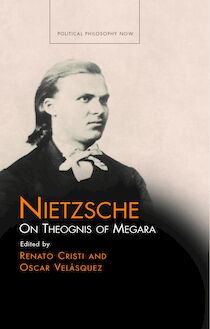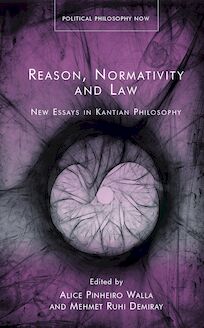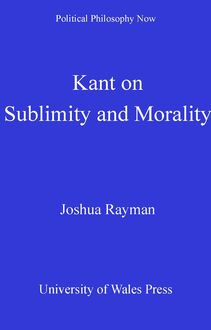Imperfect Cosmopolis , livre ebook
142
pages
English
Ebooks
2011
Vous pourrez modifier la taille du texte de cet ouvrage
Obtenez un accès à la bibliothèque pour le consulter en ligne En savoir plus
Découvre YouScribe en t'inscrivant gratuitement
Découvre YouScribe en t'inscrivant gratuitement
142
pages
English
Ebooks
2011
Vous pourrez modifier la taille du texte de cet ouvrage
Obtenez un accès à la bibliothèque pour le consulter en ligne En savoir plus
Publié par
Date de parution
15 avril 2011
Nombre de lectures
1
EAN13
9781783164592
Langue
English
Publié par
Date de parution
15 avril 2011
Nombre de lectures
1
EAN13
9781783164592
Langue
English
Chief Editor of the Series: Howard Williams, Aberystwyth University, Wales
Associate Editors: Wolfgang Kersting, University of Kiel, Germany Steven B. Smith, Yale University, USA Peter Nicholson, University of York, England Renato Cristi, Wilfrid Laurier University, Waterloo, Canada
Political Philosophy Now is a series which deals with authors, topics and periods in political philosophy from the perspective of their relevance to current debates. The series presents a spread of subjects and points of view from various traditions which include European and New World debates in political philosophy.
For other titles in this series, please see the University of Wales Press website: www.uwp.co.uk
POLITICAL PHILOSOPHY NOW
Imperfect Cosmopolis Studies in the History of International Legal Theory and Cosmopolitan Ideas
Georg Cavallar
UNIVERSITY OF WALES PRESS • CARDIFF • 2011
© Georg Cavallar, 2011
All rights reserved. No part of this book may be reproduced in any material form (including photocopying or storing it in any medium by electronic means and whether or not transiently or incidentally to some other use of this publication) without the written permission of the copyright owner except in accordance with the provisions of the Copyright, Designs and Patents Act 1988. Applications for the copyright owner’s written permission to reproduce any part of this publication should be addressed to The University of Wales Press, 10 Columbus Walk, Brigantine Place, Cardiff, CF10 4UP.
www.uwp.co.uk
British Library Cataloguing-in-Publication Data A catalogue record for this book is available from the British Library.
ISBN 978-0-7083-2367-0 (hardback)
978-0-7083-2382-3 (paperback) e-ISBN 978-1-78316-459-2
The right of Georg Cavallar to be identified as author of this work has been asserted by him in accordance with sections 77 and 79 of the Copyright, Designs and Patents Act 1988.
Cover design: Clifford Hayes Cover image: Grunge background © Duncan Walker/iStockphoto
Contents
Acknowledgements
1 Introduction
2 Vitoria, Grotius, Pufendorf, Wolff and Vattel: Accomplices of European Colonialism and Exploitation, or True Cosmopolitans?
3 British Enlightenment: the Triumph of Commercial Cosmopolitanism
4 Kant and the ‘Miserable Comforters’: Contractual Cosmopolitanism
5 Late Eighteenth-century International Legal Theory: from Cosmopolis to the Idea of Europe
6 Immigration, Rights and the Global Community: Pufendorf, Vattel, Bluntschli and Verdross
7 Conclusion
Notes
Select Bibliography
Acknowledgements
This book grew out of several papers I delivered at various conferences over the last three years, and articles I published in different journals. Above all, I want to thank my wife Angelika for her almost stoic indifference when I was continuously absent-minded, especially during shared meals, conversations, and whenever she had something important to tell me. With kind amusement, she allowed me to work on this book which, in her opinion, has one major disadvantage: it is not going to make me rich. I am grateful to our children Clemens, Antonia and Valentina for tons of hugs, kisses, and laughter. The Stoics conceived humans as surrounded by a series of concentric circles, one of them being one’s immediate family. I realized the truth hidden in Edmund Burke’s famous statement that affections begin at home, and that we should not forget to ‘love the little platoon we belong to in society’, as it is ‘the first link in the series by which we proceed toward a love … to mankind.’
I am indebted to many people for their help and continuous support, sometimes for years, especially to Sharon Anderson-Gold, Gideon Baker, Moritz Csáky, Lisa Ellis, Bardo Fassbender, Jörg Fisch, Pauline Kleingeld, Chris Laursen, Rebecka Lettevall, Herta Nagl-Docekal, August Reinisch, Karl-Heinz Ribisch, Garrett W. Sheldon and, above all, Howard Williams. I am grateful to University of Wales Press and their staff for their helpful and patient supervising of this book project.
Several chapters are based on previous papers and articles: Chapter 2 was published in the Journal of the History of International Law , 10 (2008), 181–209. Chapter 3 is a modified version of a paper delivered at a conference in Frankfurt am Main, and subsequently published in German. ‘Late eighteenth-century international legal theory’ grew out of a conference at Tours, October 2007. Chapter 6 is based on ‘Immigration and sovereignty. Normative approaches in the history of international legal theory (Pufendorf – Vattel – Bluntschli – Verdross)’, published in Austrian
Review of International and European Law , 11 (2006), 3–22, and presented at a conference in Tilburg, The Netherlands, May 2007.
I am fully aware of the fact that a book like this has its limitations. The range of publications I have consulted is limited, including only relevant ones in English and German. As English is not my native tongue, I should like to ask my readers’ forgiveness, still hoping that I have succeeded in presenting my ideas clearly and intelligibly in spite of this fact. In any case, I trust that this book is a convincing example of what in the first chapter I will call intellectual cosmopolitanism, and that my readers will be able to feel my fascination with the intellectually vibrant and fascinating eighteenth century.
1 • Introduction
It seems that ‘cosmopolitanism’ is the new buzzword of a new century. Several factors are usually mentioned which might have contributed to the reactivating of the concept: the end of the Cold War, a growing awareness of global risks such as climate change which cannot be dealt with at a national level, economic and cultural globalization, the new global terrorism, and the US ‘war on terror’ during the presidency of George W. Bush Jr. (2001–9). Others have stressed cultural or intellectual factors such as the rise of ethnocentric nationalism and liberal and/or leftist attempts to counter it, or a broad disappointment with theories of multiculturalism, universalism, economic globalization or pluralism. 1
In particular, cosmopolitanism has been linked with the expansion and deepening of the European Union and Europeanization. Authors have expressed hopes of a ‘post-national, cosmopolitan form of loyalty’, or see the European Union as a transnational institution which might realize the principles of cosmopolitan democracy. 2
The new buzzword has begun to mean or denote almost anything: the frequent traveller who is ‘critical’ towards her own country, the white Western male who considers nation-states outdated and nationalists retarded, the intellectual who has come to disdain the former buzzword ‘globalization’. 3 John Cameron has found nine possible interpretations, from the global citizen to the cultural explorer. 4 Others have added a range of adjectives to give an apparently flaky concept more substance or to refine it. We can read, among others, about ‘exclusionary cosmopolitanism’, ‘oppositional cosmopolitanism’, ‘eccentric cosmopolitanism’, ‘consumer cosmopolitanism’, ‘banal cosmopolitanism’ or ‘emancipatory cosmopolitanism’. 5 Sometimes cosmopolitanism is just a perspective or a point of view, sometimes it is an activity. Cosmopolitanism may coincide with universalism, or might just be a negative concept, ‘the critique of a nationalist Weltanschauung’ . 6 If we consider all this confusion, and if we keep in mind that cosmopolitanism might turn into an ideology, it is not surprising that several authors have recently opted to keep the concept open and indeterminate, ‘precisely because specifying cosmopolitanism positively and definitely is an uncosmopolitan thing to do’. 7 Alas, this reasoning is a bit unfortunate, because the adjective ‘uncosmopolitan’ already implies – or begs for – a definition.
Contemporary debates
Conceptual confusion could not stop a boom of publications on cosmopolitanism in recent years. In particular philosophers, political scientists and sociologists have joined a fascinating debate. 8 David Held made a start and developed the theory of a cosmopolitan democratic law in 1995, acknowledging the origin of the concept in Kant’s political philosophy (see Chapter 4 below). Noting the ‘democratic deficit’ of international organizations, Held claimed that democratic practices have to cross territorial boundaries if a commitment to democracy, representation, and accountability should be retained. Held’s normative ideal is a cosmopolitan system where people ‘would come … to enjoy multiple citizenships – political membership in the diverse political communities which significantly affected them’. 9
In a hotly debated essay entitled ‘Patriotism and Cosmopolitanism’ (1996), Martha Nussbaum argued for our primary allegiance ‘to the worldwide community of human beings’, and for cosmopolitan education. 10 Her provocative theses led to a string of essays which discussed her use of the concept of ‘world citizenship’, the problem of normative universalism, and the relationship between nationalism, patriotism and cosmopolitanism(s). In a more recent publication, Frontiers of Justice (2006), Nussbaum criticizes the limitation of the social contract tradition, arguing that Rawlsian liberalism excludes those who cannot take part in such a contract.
Two other US scholars also deserve to be mentioned. Taking neo-Kantian and Rawlsian theories of international justice as a starting point, Seyla Benhabib develops a post-metaphysical ‘vision of just membership ’ on a global scale, tackling issues of migration, immigration, hospitality and democratic iteration, which mediates ‘between universal norms and the will of democratic majorities’. She argues for a weak juridical cosmopolitanism and a ‘dialogic universalism’ which avoids the pitfalls of natural law-universalism and normative relativism. 11 Ghanaian philosopher Kwame Anthony Appiah has developed what he calls ‘rooted cosmopolitanism’, with people identifying with the














